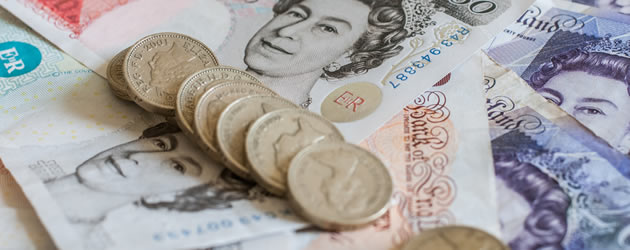EUR/GBP Exchange Rate Trading Higher Following PMI Releases on Both Sides
The Pound Euro (GBP/EUR) exchange rate is edging higher during today’s session as the UK, Eurozone and Germany all release PMI figures for January.
At the time of writing, the EUR/GBP exchange rate is trading at around €0.8400, approximately up by 0.4% from today’s opening levels.
Euro (EUR) Gains amid Mixed PMI Figures
The Euro (EUR) is rising against the Pound (GBP) following the release of the Eurozone’s and Germany’s PMI data for January.
As the strongest economy in Europe, Germany’s upbeat PMI figures have bolstered EUR.
The PMI for services and manufacturing in Germany has beaten forecasts of 48 and 57, and achieved higher than the previous readings of 48.7 and 57.4, and have printed at 52.2 and 60.5.
The Eurozone’s manufacturing PMI for January also exceeded expectations, printing at 59, higher than the forecast and previous readings of 58 and 57.5, respectively.
Meanwhile, services PMI slipped 51.2, down from the previous reading of 53.1 and predictions of 52.2.
Giles Coghlan, chief analyst at HYCM, said:
‘Yes, service sector activity has weakened once again, however this holds in expansionary territory above 50, which looks reasonable. With this in mind, a repeat of last winter’s events looks unlikely, and the impact of Omicron on services looks set to be fairly limited.
‘Encouragingly, manufacturing PMI has improved, up from 58 in December and comfortably above consensus – according to Markit, transporting delays are also easing.
Going forward, easing supply chain issues mean producer prices will likely fall, and hypothetically this would take pressure off the ECB. So far, they have stuck to their ‘inflation is transitory’ guns, and this scenario would mean that there is less pressure to change this narrative.’
Pound (GBP) Stumbles Following Disappointing UK PMI Figures
Meanwhile, the Pound (GBP) is losing ground against the Euro (EUR) in response to weaker-than-expected PMI data for January.
The manufacturing PMI dropped to 56.9 from the previous and forecast print of 57.9.
This is the slowest growth in factory activity since February, and new order intakes suffered the worst month in a year.
Omicron, restrictions and forward-purchasing are considered to be the key factors for this slowdown in economic growth.
Moreover, the UK’s services PMI declined to 53.3 from 53.6 when it had been expected to increase to 54.8.
This shows the slowest expansion rate for 11 months, particularly in customer-facing sectors, such as travel and hospitality, and is largely due to restrictions imposed during the height of Omicron cases.
However, job growth and business confidence improved.
Chris Williamson, chief business economist at IHS Markit, said:
‘Business confidence in the outlook also picked up, driving sustained solid jobs growth.
‘With inflationary pressures remaining elevated at near-record levels, this all adds to the likelihood of the Bank of England hiking interest rates again at its upcoming meeting.’
EUR/GBP Forecast: Will the Geopolitical Landscape Weigh On GBP and EUR?
Looking ahead, the Euro Pound (EUR/GBP) exchange rate is likely to be influenced by the geopolitical landscape.
Sue Gray’s investigation report regarding Boris Johnson and the ‘Partygate’ scandal is expected to be published this week. Should this drive uncertainty over Johnson’s position as Prime Minister, it may weigh on Sterling’s potential.
The single currency, however, may be weighed on the Russia-Ukraine tensions, and ongoing Brexit negotiations may also place pressure on the pairing.



